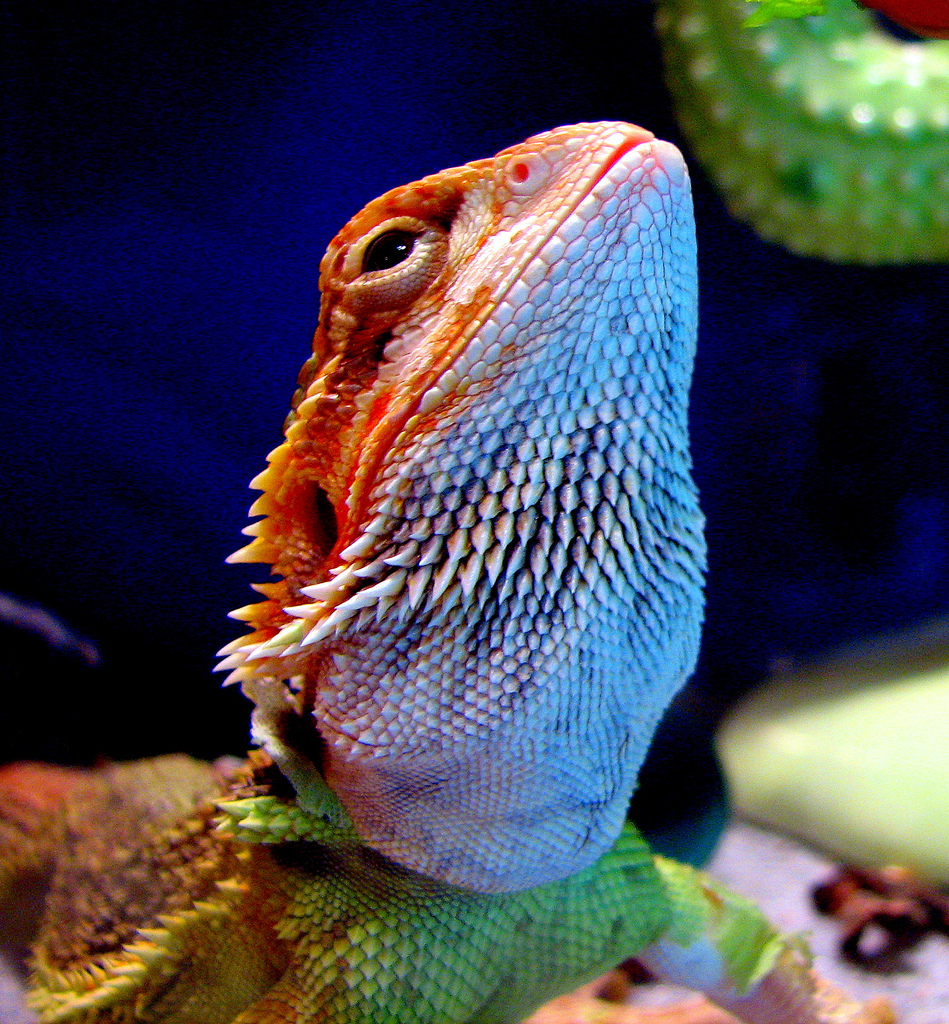Bearded dragons are stunning animals that make perfect family pets. However, their good looks often prompt people to buy them before actually preparing to bring a bearded dragon into their home. If you’re considering purchasing a bearded dragon for your family, make sure it is in good health and is older than 6 weeks. Younger ones may be cute, but an older dragon will be less prone to stress and other ailments.
Take the time to research the bearded dragon and create an environment suitable for its tastes. Caring for a bearded dragon is really no more complicated than most animals. However, your bearded dragon is not a cat or a dog and needs specialized care.
Enclosure for a Bearded Dragon
Your bearded dragon needs a house, and it needs a very special house to stay healthy and happy. It is often tempting to stick a bearded dragon in any old aquarium, but consider how large your bearded dragon will eventually grow. Within the first few months of life, your bearded dragon will grow to need a 40gal aquarium. Save yourself some time, money, and frustration and purchase the correct size in the beginning. Also make sure you have a proper lid. Bearded dragons require airflow, so consider a screen or mesh lid that is well secured. Solid materials such as glass, plywood, or plastic should not be used.
Feeding Your Bearded Dragon
Bearded dragons eat a wide variety of foods including both plant and animal matter, as long as the pieces are small; large pieces are hazardous. Supply greens such as kale, mustard greens, and collard greens for your pet. Also consider offering sweet potato, green beans, and parsnips. Squash can be offered, but only if it has been cooked until soft and then thoroughly cooled. Keep greens available at all times, spraying with water to keep them fresh. This will also help hydrate your bearded dragon.
Most people feed their bearded dragons crickets, anywhere from 20-60 a day. In general, you should feed your pet until it doesn’t want any more. Older dragons can be offered more than crickets. Try mealworms, red worms, earthworms, and even cockroaches. However, purchase these things only from a pet supply store. Wild insects and worms may carry diseases or parasites that can harm your dragon. Remember to dust the crickets (or other food) with calcium powder and a multivitamin supplement to keep your dragon healthy and happy.
Lighting for Your Bearded Dragon
Bearded dragons like light, so you’ll need a UV light of some kind. Place the UV light so that it shines directly on the bearded dragon, not through the glass. This usually means placing it above the enclosure so that it can shine through the mesh top. It is generally a good idea to provide your bearded dragon with 12-14 hours of consecutive light, so keep replacement bulbs on hand.
Substrate for a Bearded Dragon
One of the biggest mistakes new owners make with bearded dragons is not providing appropriate substrate. Younger dragons are usually happy with newspaper or paper towels. Reptile grass may look good, but make sure it doesn’t have little loops that can tangle around your bearded dragon’s claws. This can cause trauma that you and your pet simply don’t need. Older dragons enjoy sand. You could purchase fancy reptile sand, but it’s expensive. Instead, consider play sand that can be acquired for very little money from your local hardware store, especially in the spring. Don’t get too creative in your choice of substrate. Your pet may eat it and become ill.
Temperature for a Bearded Dragon
Bearded dragons like a variation in temperature. To this end, you’ll have to provide a cool area and a warm area that can be used for basking. The cool area can be room temperature, but the warm area needs to be significantly warmer. 95F is a good temperature for most adults. Younger bearded dragons may like it as high as 110F. Use a basking light to create this heat, not heated rocks. Heated rocks can burn the sensitive underside of your bearded dragon.
Bearded dragons need very specialized care. You’ll have to take the time to supply an appropriate habitat and the right foods. However, this effort is rewarded by a pet that is trusting, fun, and endearing. Bearded dragons can bring joy into your home, and you owe it to your pet to take proper care of your new family member.
